Queensland public sector unions to demand post-election pay rises
Queensland’s public sector nurses, teachers and police unions will squeeze the newly elected state government for nation-leading pay rises after next month’s election, heaping pressure on the budget bottom line.
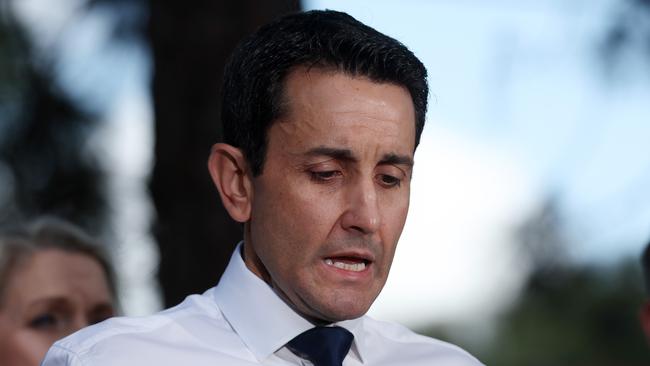
Queensland’s public sector nurses, teachers and police unions will squeeze the newly elected state government for nation-leading pay rises after next month’s election, heaping pressure on the budget bottom line.
The Australian can reveal the powerful Queensland Nurses and Midwives Union – which has 70,000 members statewide – will push for a wage increase of more than 3.8 per cent annually, above the 2.5 per cent policy locked into Labor’s state budget and endorsed by the LNP Opposition.
But taxpayers will be slugged an extra $352m a year for every percentage point salary rise above 2.5 per cent, as the enterprise bargaining agreements for the key frontline public sector workers expire by June.
And the unions are also expected to lobby to keep the Australia-first cost-of-living amendment built into the last three-year EBAs, which top up wages when inflation exceeds the pay rise rate.
If the LNP wins government as successive published polls predict, the industrial negotiations will put leader David Crisafulli on a collision course with unions when he is desperate to avoid replicating one-term Premier Campbell Newman’s tortured relationship with the public sector.
The Labor government’s public sector expenses bill will surge to $35.2bn this financial year for 266,999 full-time equivalent employees, the largest cost on the state’s balance sheet.
That was $2bn higher than public service costs in 2023-24, on the back of the last round of EBA negotiations, which secured four per cent annual wage increases for the first two years and three per cent for the final year.
QNMU secretary Sarah Beaman confirmed 2.5 per cent would not be enough for her members.
“With CPI reaching 3.8 per cent in the 12 months to the June quarter, the QNMU will be pushing for a better deal as 2.5% would represent a pay cut in real terms”.
The nurses’ agreement expires in March, while the police officers’ deal finishes in June.
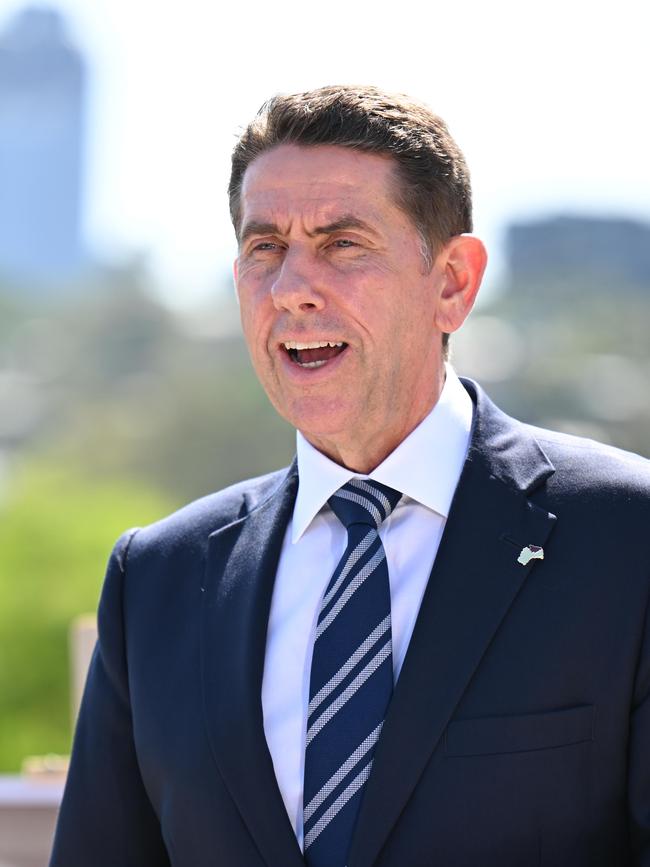
According to Labor’s budget forecasts, workers will receive a real wage cut next financial year with inflation predicted to rise to 3.25 per cent. But Treasury forecasts the wage rate will keep pace with inflation for the next two years.
Queensland Police Union president Shane Prior said the union would start negotiating early next year on the EBA to “maximise better pay and working conditions” for its 12,500 members.
“Queensland police are being asked to take on more duties, responsibilities for other government departments plus battle with cost of living pressures,” Mr Prior said.
“We are confident there will be strong evidence for police to receive equitable payrises for the work they do.”
A Queensland Teachers’ Union said teachers were feeling the “current tough cost of living pressures” and flagged that its claim “must ensure its members are among the highest-paid in the country”.
“With well-reported teacher shortages, workload issues, inequity in funding compared to the private sector and occupational violence, it is paramount our teachers feel respected and see value in their next enterprise bargaining agreement,” she said.
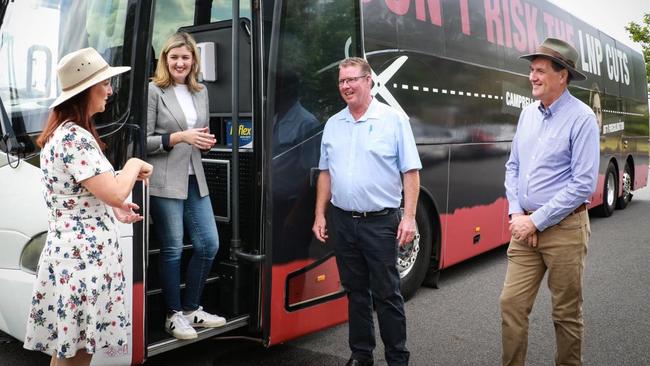
The QNMU and QTU are registered third parties for the October 26 election, meaning the industrial organisations can spend up to $1m during the campaign.
A government spokesman said: “The aim of the government would be to maintain wages in real terms at a minimum”.
Asked whether an LNP government would stick to the budgeted 2.5 per cent wage increase for public servants when negotiating the new EBAs, LNP Treasury spokesman David Janetzki did not answer.
He said “of course EBAs would be honoured”. Mr Crisafulli has previously promised no forced redundancies in the public service.
Labor ran a successful scare campaign during the 2020 state election, with a “cuts bus” that travelled to about 80 electorates, claiming the LNP would cut thousands of public servant jobs if re-elected.
Deputy Premier Cameron Dick has been leading the attacks again ahead of the October 26 poll, on Wednesday accusing Mr Crisafulli of having a “cuts agenda”.
“All we hear from David Crisafulli are a bunch of slogans and undercooked, underfunded promises that he cannot deliver without cutting.”

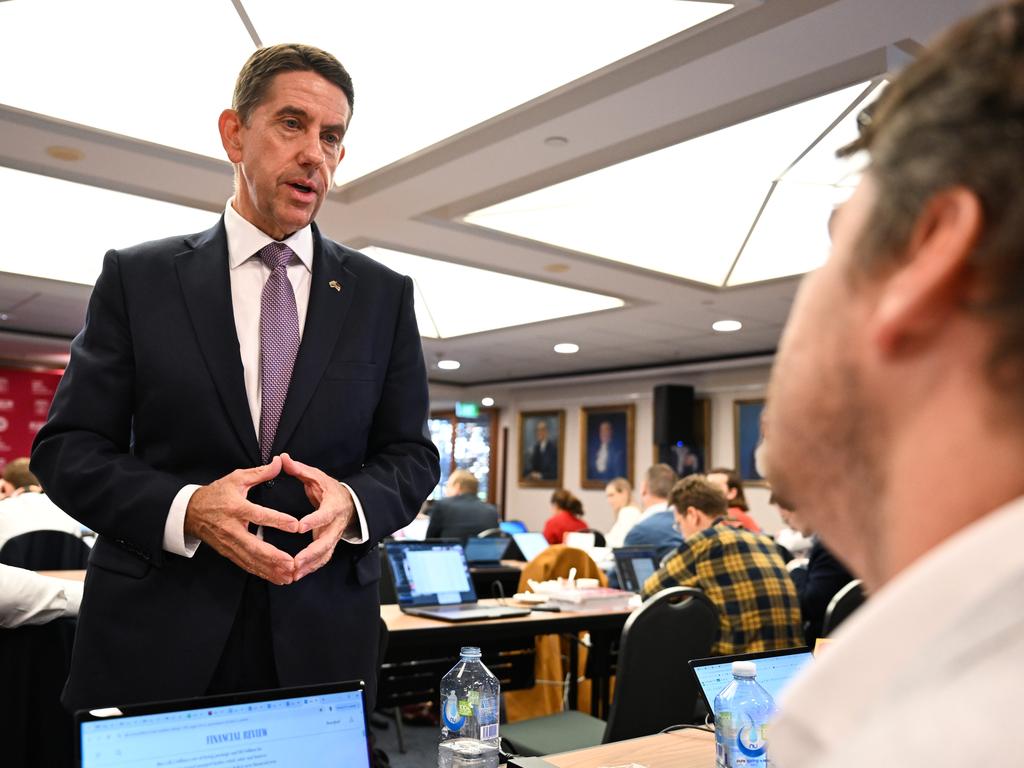
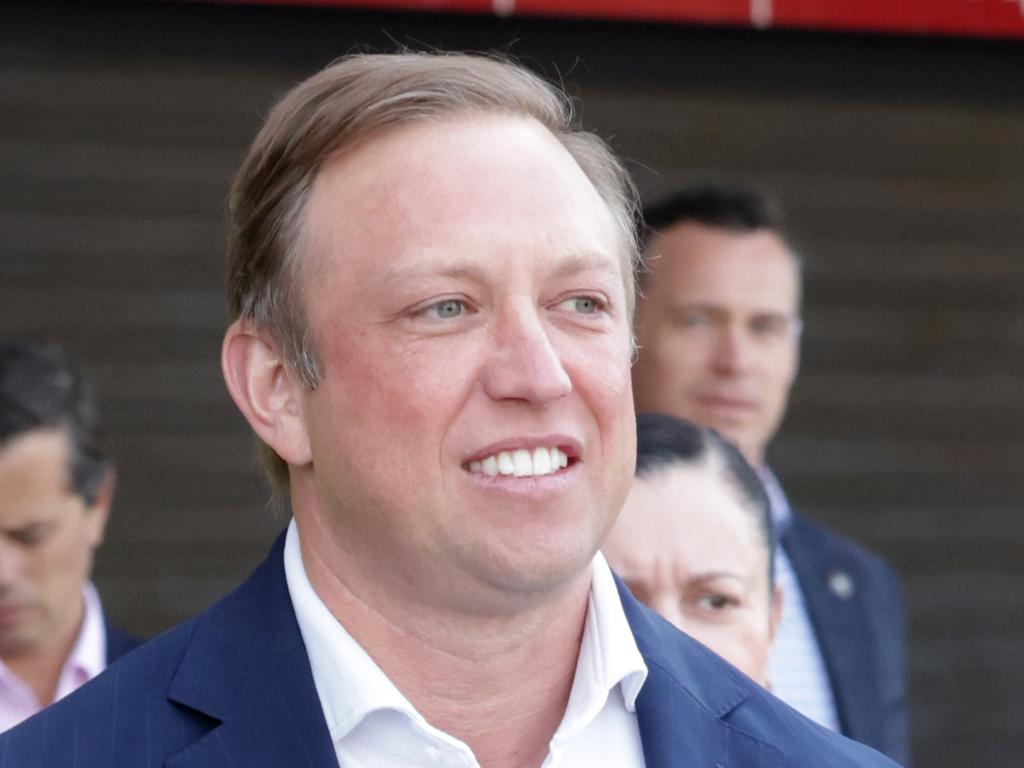


To join the conversation, please log in. Don't have an account? Register
Join the conversation, you are commenting as Logout